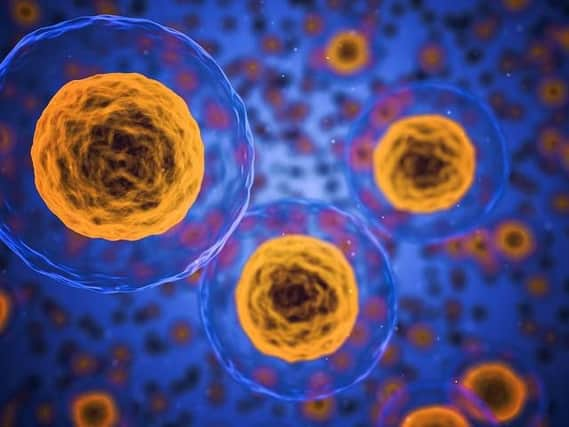Major ‘don’t eat me’ signal found in cancer cells


Normally, immune cells detect cancer cells and engulf them, but researchers have previously discovered proteins on the surface of cells that can tell them not to do this.
This is useful to ward off attacks on normal, healthy cells, but scientists have found that cancer cells are using these signals to hide.
Advertisement
Hide AdAdvertisement
Hide AdResearchers at the Stanford University School of Medicine have now discovered a new protein, called CD24, that acts as a potent “don’t eat me” signal “capable of directly protecting cancer cells from attack”.
When the researchers blocked the CD24 signal in mice implanted with human cancers, they found that this allowed the immune cells, called macrophages, to attack the cancer cells.
This led to a reduction in tumour growth and increase in survival time in the mice.
Researchers from the university have previously shown that the proteins PD-L1, CD47 and the beta-2-microglobulin subunit of the major histocompatibility class 1 complex are all used by cancer cells to protect themselves from immune cells.
Antibodies that block CD47 are in clinical trials, while treatments that target PD-L1 or the PD-L1 receptor are being used in clinics.
A paper describing the research is published in Nature.
Lead author Amira Barkal, an MD-PhD student, said: “Ovarian cancer and breast cancer are two of the most deadly diseases affecting women, and both are very aggressive cancers that are notoriously difficult to treat in the clinic.
“We are excited about the potential of these findings to provide a new strategy to treat and maybe even cure ovarian cancer and breast cancers.”
